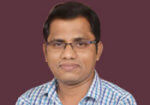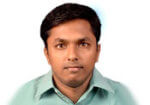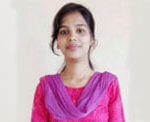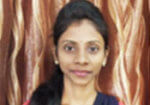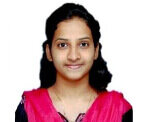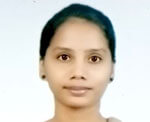Department of Microbiology
Established in 2006
B.Sc. Choice Based Semester System
Offers fishery biology as applied subject at TY
Intake capacity of 35 student
Introduced M.Sc. Credit based semester course from 2016-17
M.Sc. Intake capacity – 20
Lab Details
Lab I:
Total area in square feet: 44ft. X 34 ft.
Instrumentation Room:
Total area in sq.ft.: 34 ft. x 14 ft.
Store Room:
1. Total area in sq.ft.: 8 ft. x 8.5 ft.
2. Total area in sq.ft.: 13 ft. x 2.5 ft.
Washing room:
Total area in sq.ft.: 10.5 ft. x 6.5 ft.
Incubation Room:
Total area in sq.ft.: 14.5 ft. x 6.5 ft.
Preparation Room:
Total area in sq.ft.: 16 ft. x 14.5 ft.
Passage:
1. Total area in sq.ft.: 58.5 ft. x 10.5 ft.
2. Total area in sq.ft.: 18 ft. x 4 ft.
3. Total area in sq.ft.: 14 ft. x 8.5 ft.
Research Equipments
1. PCR Machine
2. Cooling Centrifuge (Remi)
3. FTIR
4. Double beam UV Spectrophotometer.
5. Deep Freezer
6. Trinocular Research Microscope with attached Digital Camera (Model: Axiostar, Zeiss, Germany, Camera – Cannon)
7. Steriomicroscope (Model: Stemi DV 4, Zeiss, Germany, Camera – Cannon)
8. Inverted microscope (Radical)
9. Trinocular Research Microscopes (Model; Labomed and Metzer)
Equipments
1. Compound Microscopes (Labline)
2. Laminar Air Flow Cabinets – Vertical and Horizontal
3. Electrophoresis apparatus (Horizontal, Vertical models with Power Pack, Techno Source)
4. Thin Layer chromatography Kit (Desaga Type)
5. Centrifuges(Remi R-24)
6. Monopan Balance (Citizen and Schimadzu, Japan)
7. Turbidity Meter (Equiptronics)
8. pH Meters (Equiptronics)
9. Colorimeters (Equiptronics)
10. Magnetic Stirrer and Hot plate (Remi)
11. Autoclaves (Labline)
12. Hot Air Oven
13. Digital Water Bath
14. Refrigerators (Samsung)
15. Spectrophotometer
16. Microtome
17. Incubator
18. Environmental shaker
19. Room Temperature Shaker
Photo of Equipments
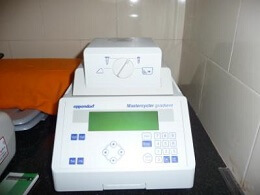
PCR Machine
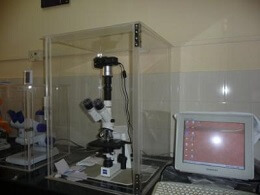
Carl Zeiss Microscope
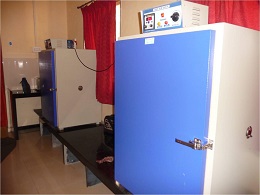
Oven-Incubator

Microscopes
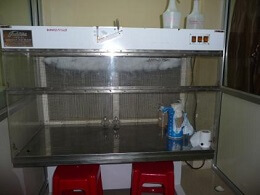
Laminar Air Flow Cabinet
Curriculum
Programmes Offered:
B Sc in Microbiology
M Sc in Microbiology
UG
| Class and Semester | Course Nomenclature | Type(Optional, Elective, Compulsory, etc.) |
|---|---|---|
| F. Y. B. Sc. Semester I | 1.Microbiology i) Fundamentals of Microbiology ii)Basic Techniques in Microbiology |
Compulsory |
| 2. Zoology | ||
| 3. Chemistry | ||
| 4. Foundation Course | ||
| F. Y. B. Sc. Semester II | 1.Microbiology i) Basics of Microbiology ii) Exploring Microbiology |
Compulsory |
| 2. Zoology | ||
| 3. Chemistry | ||
| 4. Foundation Course | ||
| S. Y. B. Sc. Semester III | 1. Microbiology i) Biomolecules and Microbial Taxonomy ii) Environmental Microbiology iii) Introduction to Clinical Microbiology Or iii) Basic and Advanced Microbiology |
Compulsory |
| 2. Zoology | ||
| 3. Foundation Course | ||
| S. Y. B. Sc. Semester IV | 1. Microbiology i) Metabolism & Basic Analytical Techniques ii) Applied Microbiology iii) Fermented Foods, Food sanitation & Microbial Ecology Or iii) Soft skills, Advances and Applications of Microbiology |
Compulsory |
| 2. Zoology | ||
| 3. Foundation Course | ||
| T.Y.B.Sc. Semester V | 1. Microbiology i) R DNA technology, Bioinformatics & virology ii) Medical Microbiology & Immunology Part II iii) Microbial Biochemistry Part II iv) Applied & Industrial Microbiology |
Compulsory |
| 2. Fishery Biology – Applied Component |
PG
| Class and Semester | Course Nomenclature | Course Type |
|---|---|---|
| M. Sc. Part I Semester I | 1. Cell Biology and Virology | Compulsory |
| 2. Microbial Genetics | ||
| 3. Microbial Biochemistry | ||
| 4. Medical Microbiology and Immunology | ||
| M. Sc. Part I Semester II | 1. Cell Biology and Virology | Compulsory |
| 2. Microbial Genetics | ||
| 3. Microbial Biochemistry | ||
| 4. Medical Microbiology and Immunology | ||
| M. Sc. Part II Semester III | 1. Tools and Techniques : Research Methodology | Compulsory |
| 2. Food Microbiology | ||
| 3. Advances in Biotechnology | ||
| 4. Applied and Environmental Microbiology | ||
| M. Sc. Part II Semester IV | 1. Tools and Techniques : Research Methodology | Compulsory |
| 2. Pharmaceutical Microbiology | ||
| 3. Advances in Biotechnology | ||
| 4. Applied and Environmental Monitoring and Management |
Programme & Course Outcomes
UG Microbiology
Syllabus can be divided into pure microbiology, applied microbiology and microbiological techniques. In pure microbiology, students learn about basic concepts of microbiology.
A course on environmental microbiology has been introduced in order to make students familiar with the biodiversity of microorganisms in different habitats/ecological niches including extreme environments and applications of these microorganisms in bioremediation, pollution control, agriculture, pharmaceuticals & biotechnology.
Immunology has been combined with epidemiology of infectious diseases plus diagnostic & clinical microbiology in order to make the learners aware about the spread of infection by different routes, sources of infection and functioning of the clinical microbiology laboratory. Earlier module of microbial biochemistry has been updated as per the recent developments in molecular biology & enzymology with an objective to raise the students awareness in interdisciplinary courses such as biophysics, bioinformatics and computational biochemistry.
PG Microbiology
Syllabus includes, pure microbiology, advances in microbiology and modern tools and techniques. The main objective of syllabus is to provide knowledge about all interdisciplinary subjects related with microbiology. PG students learn about virology, medical microbiology, advances in microbiology and biotechnology, genetics, cell and molecular biology, food microbiology and tools and techniques. In second year, there is a entire paper of research methodology, this paper helps in report writing, data collection and analysis. They also have research project, which helps to inculcate the research values among the students and to get placement in R&D organizations and research institutes. In order to assist students in developing research skills in general and in specific area of their interest/ specialization in particular, research proposal & research project component has been retained in the revised syllabus. This component will provide students with an opportunity to conduct independent research in the subject of Microbiology at their own P.G. centers and if the research project demands, in conjunction with relevant industries/ research institutes. Accordingly a paper on Research Methodology & Biomolecular analysis has been introduced in the revised syllabus. In order to enable students to develop employable skills concurrently with an understanding of theoretical foundations and practical techniques required in R & D, quality control, regulatory function in pharmaceuticals, food industry, environmental sciences, papers on Pharmaceutical Microbiology, Food Microbiology, Advances in Biotechnology, Applied & Environmental Microbiology and Applied & Environmental monitoring and management have
been included in the revised syllabus.
Course Outcomes
| Class | Course code | Course Outcomes |
|---|---|---|
| F.Y.B.Sc | USMB101 | Study of Different Groups of Microbes and Growth of Microorganisms |
| USMB102 | Study of Microbial Interactions: Microbes Its Relation to Human Health; Advance Techniques in Microbiology & Instrumentation | |
| USMB201 | Fundamentals of Microbiology including History, Introduction, Scope of the Subject, Prokaryotic and Eukaryotic Cells & Macromolecules | |
| USMB202 | Fundamentals of Microbiology including History, Introduction, Scope of the Subject, Prokaryotic and Eukaryotic Cells & Macromolecules | |
| S.Y.B.Sc | USMB301 | Microbial Diversity in Extreme Environments, Microbial Taxonomy & Instrumentation in Microbiology |
| USMB302 | Environmental Microbiology: Air, Fresh Water, Marine Water, Sewage, Soil, Geo Microbiology | |
| USMB303 | Metabolism & Biology of Macromolecules: Study of Enzymes, Principles of Bioenergetics, Estimation of Biomolecules |
|
| USMB401 | Medical Microbiology & Immunology: Study of Immune System, Epidemiology of Infectious Diseases, Diagnostic & Clinical Microbiology |
|
| USMB402 | Industrial, Food & Dairy Microbiology: | |
| USMB403 | Molecular Biology & Enzymology Including Nucleic Acids to Translation and Translation In Prokaryotes | |
| T.Y.B.Sc | USMB501 | Microbial Genetics |
| USMB502 | Medical Microbiology & Immunology-Part I Respiratory and urinary tract infections, gastrointestinal and central nervous system infections, general immunology |
|
| USMB503 | Microbial Biochemistry- Part I solute transport, bioenergetics & bioluminescence, methods of studying metabolism, catabolic pathways of carbohydrates |
|
| USMB504 | Bioprocess Technology-Part I Upstream processing and some traditional industrial fermentations |
|
| USMB601 | r-DNA Technology, Bioinformatics & Virology – Basic and advance virology | |
| USMB602 | Medical Microbiology & Immunology-Part II Medical microbiology, chemotherapy & immune system in health and diseases |
|
| USMB603 | Microbial Biochemistry-Part II Catabolism & anabolism of proteins, lipids, nucleic acids, aromatic compounds and its regulation, prokaryotic photosynthesis & inorganic metabolism |
|
| USMB604 | Bioprocess Technology- Part II Downstream processing, advances in bioprocessing and the instrumentation involved, biotechnological products and regulatory practices, QC |
|
| M.Sc,I | PSMB101 | Cell Biology & Virology: Study of Bacterial and Plant Viruses, Membrane Structure & Transport, Respiratory & Photosynthetic Organelles |
| PSMB102 | Microbial Genetics: Gene expression and regulation, Replication, recombination, mutation and repair, Cytoplasmic Inheritance & Chromosomal Rearrangements, Molecular tools for genetics, Population genetics |
|
| PSMB103 | Microbial Biochemistry: Aqueous and acid-base chemistry, Bioorganic Molecules, Metabolism of one & two carbon Compounds, Transfer of biomolecules |
|
| PSMB104 | Medical Microbiology & Immunology: Advances in Medical, Microbiology, Epidemiology of infectious Diseases, Immune System and Health, Immune System and Health |
|
| PSMB201 | Cell Biology & Virology: Animal viruses, relation of virology to human health, Cell division and cell cycle, cell communication |
|
| PSMB202 | Microbial Genetics: Viral genetics, gene transfer, Transposable elements, developmental genetics, applications and ethics in genetic technology |
|
| PSMB203 | Microbial Biochemistry: Analytical biochemistry, enzymology, signalling and stress, microbial degradation |
|
| PSMB204 | Medical Microbiology & Immunology: Advances in Medical Microbiology, clinical research, modern diagnostics, immune system and health, challenges in immune system. |
|
| M.Sc. II | PSMB301 | Tools and Techniques : Research Methodology Research fundamentals and terminology, defining research problem, data collection, sampling and the distribution, data analysis, report writing |
| PSMB302 | Food microbiology: Microbes present in food, use of microbes in food, control of microbes, microbial detection, food safety |
|
| PSMB303 | Advances in Biotechnology: Plant, Nano, Animal, Agricultural and medical biotechnology |
|
| PSMB304 | Applied and environmental microbiology: Microbial biodiversity, techniques in microbial ecology, soil, marine and agriculture microbiology, advanced food and water microbiology |
|
| PSMB401 | Tools and techniques in biomolecular analysis: Spectroscopic, chromatographic. Molecular biology and nano techniques |
|
| PSMB402 | Pharma-microbiology: GMP, Quality management, Regulatory aspects, analytical aspects, drug discovery |
|
| PSMB403 | Advances in Biotechnology: Pharmaceutical, Marine, Molecular biotechnology, IPR, ethics in biotechnology |
|
| PSMB404 | Applied and environmental monitoring and management: Bioremediation, biodegradation, waste disposal, Biofilm management, environmental pollution and monitoring, resource management and safety standards |
Analysis of Feedback on Syllabus
Parents Feedback:
Most of the parents agree that the syllabus of B. Sc. Microbiology is helpful in terms of knowledge, development and seeking employment for their wards. They are satisfied with teaching and evaluation practices of the department. They are also satisfied with the library resources and other resources such as e books, animations etc. related to the syllabus.
| Satisfaction with teaching learning and evaluation | Fully agree:30%, Agree: 70% |
| Syllabus is responsible to improve intellectuality and personality of students | Fully agree: 50%, Agree: 40%, Can’t say: 10% |
| Library and other teaching resources are well equipped. | Fully agree: 30%, Agree: 60%, Disagree: 10% |
| Applicability of course | Fully agree: 20%, Agree: 70%, Can’t say: 10% |
| Course expectation studied by ward | Fully agree:60%, Agree:40% |
Students Feedback:
According to the students the syllabus is vast and challenging. They agree that 85-100% syllabus is covered in class. Study material in library with respect to syllabus is adequate. Most of the reference books are available in library and those which are not, are provided by department in the form of e books and notes. ICT usage, as per the students’ feedback is 75-100%. About the teachers’ feedback about students’ performance, student’s opinion is that the feedback is regular, on time and helpful comments.
| Syllabus type | Vast and challenging :77%, Vast but easy: 8%, Challenging but not vast: 15% |
| Completion of syllabus | 85 to 100% : 100% |
| Library material | Abundant: 54%, Adequate: 46% |
| Satisfaction with teaching learning methods (ICTs, Field trips) | 75 to 100% : 46%, 50 to 75% : 38%, 25 to 50% : 7%, Less than 25%: 7% |
| Teachers feedback on students performance | Regularly in time: 57% Regularly in time with helpful comments : 43% |
Alumni Feedback:
Same as present student feedback. They too agree that the syllabus being vast and challenging, 85-100% is covered in the class. However the ICT usage according to them is 50-75%. They also found that the employability of the course is 50-75% and they too agree that the teachers provide regular and timely feedback about students’ performance.
| Syllabus type: Vast and difficult Vast but easy |
Vast and challenging :94%, Neither challenging nor vast: 06%, |
| More than 85% to 100% syllabus covered. | 85 to 100% : 67% 70 to 85%: 33% |
| Library material: Abundant | Abundant: 56%, Adequate: 44% |
| ICT use: 75 to 100% | 75 to 100% : 33%, 50 to 75% : 61%, 25 to 50% : 06% |
| Teachers provide feedback on performance regularly. | Regularly in time: 67% Regularly in time with helpful comments : 33% |
| Applicability of course is 50 to 75% for jobs. | 75 to 100% : 39% 50 to 75% : 61% |
Achievements
| Year | Achievement |
|---|---|
| F.Y.B.Sc. | Mr. Aniket Gondhalekar
Year: 2014-15 Achievement: 90.9% (Overall Third rank in F.Y B.Sc) |
| M.Sc. I | M.Sc. I students Mr. Pritam Hulle and Mr. Sagar Salvi has completed the summer training in May- June 2017 at National Institute of Oceanography, Goa. |
| S.Y.B.Sc. | S.Y.B.Sc. students Ms. Shivani Palkar, Ms. Tejal Chavan, Ms. Mahima Mangale, Ms. Disha Gorle has participated in Shodhvedh Research Festival and Avishkar Research Festival 2016-17. |
| S.Y.B.Sc. | S.Y.B.Sc. students Ms. Shivani Palkar, Ms. Tejal Chavan, Ms. Mahima Mangale, Ms. Disha Gorle has participated in Konark Research Festival 2017 organized by V. E. S. College, Chembur, Mumbai. |
| M.Sc.I | M.Sc. I students have participated in Two Day Workshop on Fruit Processing and Food Products (27 & 28 Sep. 2016) Organized by Konkan Mango Processing Pvt. Ltd. Pawas, Ratnagiri. |
| M.Sc.I | M.Sc. I students have participated in Workshop cum Training on Applications of Bioinformatics (18-19 Feb 2017) Organized by Department of Biological Sciences, Gogate Jogalekar College, Ratnagiri. |
| Sr No | Name of the Student | Batch | Designation | Name of Company/Institute |
|---|---|---|---|---|
| 1 | Mr. Akshay Dingankar | 2019-20 | Trainee Officer, Production Dept. | Serum Institute of India, Pune |
| 2 | Mr. Amol joshi | 2020-21 | Trainee Officer, Production Dept. | Serum Institute of India, Pune |
| 3 | Mr. Ashwin Sawant | 2019-20 | Trainee Officer, Production Dept. | Serum Institute of India, Pune |
| 4 | Mr. Sudhanshu Palande | 2020-21 | Trainee Officer, Production Dept. | Serum Institute of India, Pune |
| 5 | Mr. Kedar Malye | 2020-21 | Trainee Officer, Production Dept. | Serum Institute of India, Pune |
| 6 | Mr. Chinmay Kulkarni | 2020-21 | Trainee Officer, Production Dept. | Serum Institute of India, Pune |
| 7 | Mr. Suvel Pawri | 2020-21 | Trainee Officer, Production Dept. | Serum Institute of India, Pune |
| 8 | Mr. Sagar Salvi | 2017-18 | R&D Dept | Embio Ltd, Mahad |
| 9 | Mr. Upendra Lele | 2017-18 | R&D Dept | Embio Ltd, Mahad |
| 10 | Mr. Nikhil Sawant | 2018-19 | QA Microbiologist | Allana Pvt. Ltd., Mumbai |
| 11 | Ms. Seema Sawant | 2019-20 | Production Officer Grade I | Molbio Diagnostics Pvt. Ltd. Verna, Goa |
| 12 | Mr. Kunal Kajarekar | 2019-20 | Production Officer Grade I | Molbio Diagnostics Pvt. Ltd. Verna, Goa |
| 13 | Mr. Ajinkya Siddhye | 2019-20 | QC Microbiology | Abbott Pharma, Verna, Goa |
| 14 | Ms. Gouri Bandbe | 2018-19 | Molecular Lab Technologist | Innovation Diagnostic Labs Pvt. Ltd. Pune – South Goa District Hospital, Margao, Goa |
| 15 | Ms. Diksha Nagvekar | 2018-19 | Molecular Lab Technologist | Innovation Diagnostic Labs Pvt. Ltd. Pune – South Goa District Hospital, Margao, Goa |
| 16 | Mr. Prathamesh Mahadik | 2018-19 | Microbiologist | Polypeptide Laboratory Pvt. Ltd. Ambarnath |
| 17 | Mr. Shailesh Agrahari | 2017-18 | Sr. Scientific Officer Molecular Biology (Covid 19) |
Metropolis Healthcare Ltd. Vidyavihar |
Preparation of Timetables and Academic Planning for Semester.
E library – 352 e books


